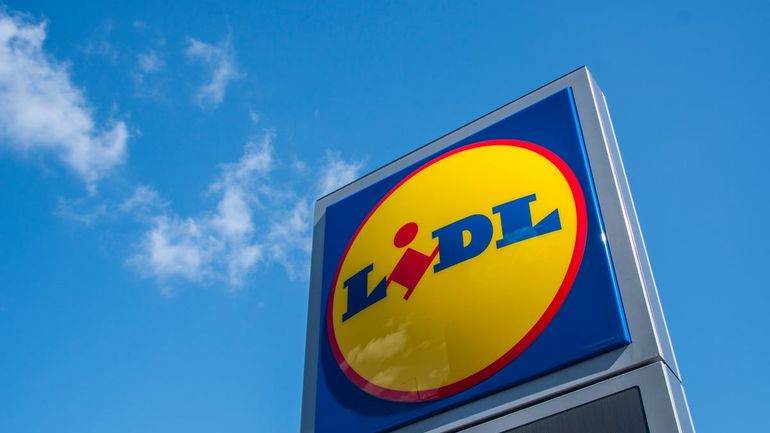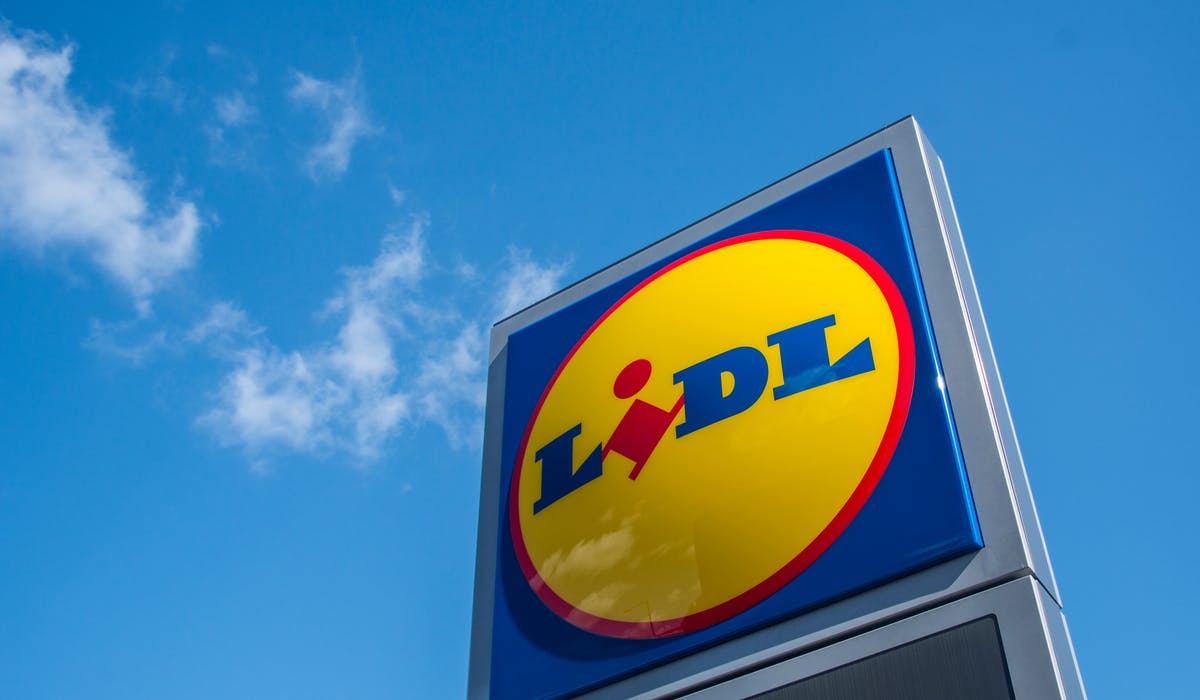
Lidl's Impressive Growth in Market Share Amidst Stabilized Grocery Inflation

With grocery inflation hovering just 0.8 percentage points above the 10-year average, Lidl's market share hits all-time high. Despite this, consumer spending patterns show resilience in the face of rising costs.
Lidl store
Lidl achieved its highest-ever market share of the grocery sector in the 12 weeks to 12 May, with 8.1% of the market, compared to 7.7% in the same period last year.
According to Kantar data, the discount supermarket is now the sixth largest grocer in the UK in terms of market share. It is steadily closing the gap with Morrisons, which currently holds a market share of 8.6%, down slightly from 8.7% last year.
In September 2022, Aldi overtook Morrisons to become the fourth largest supermarket in the UK, pushing Morrisons out of the traditional 'big four' which includes Tesco, Sainsbury's, and Asda. Although Aldi's market share has slightly decreased from 10.1% to 10% in the most recent 12-week period ending on 12 May.
Aldi's sales are increasing by 2.2%, but Lidl's sales are growing even faster at 9.4%. Kantar believes that Lidl's bakery section and Lidl Plus loyalty app are contributing to its impressive growth.
Shoppers may need more time to adjust their habits after dealing with rising prices for almost two and a half years during the cost of living crisis.
Fraser McKevitt from Kantar shares that the most recent data indicates a return to a more typical rate of grocery inflation. Grocery prices have only increased by 2.4%, the lowest it has been since October 2021. This marks the fifteenth month in a row where grocery price inflation has decreased. It is now just 0.8 percentage points higher than the average of 1.6% between 2012 and 2021.
As inflation slows down, shoppers usually stop trading down in response to rising prices. However, the success of discount stores indicates that these habits are still prevalent.
According to Fraser McKevitt, head of retail and consumer insight at Kantar, after experiencing a period of increasing prices for over two years, it may take some time for shoppers to break away from the strategies they have adopted to cope with the cost of living crisis.
Own-label products are doing well, growing faster than branded items. They make up more than half (52%) of total spending. Premium own-label ranges are also seeing a rise in sales, up by 9.9% compared to last year.
Despite ongoing cost of living concerns, grocery sales increased by 2.9% in the four weeks leading up to May 12. Kantar believes that the early May bank holiday helped boost sales.
During the summer, sporting events can help increase sales, especially in categories such as alcohol, according to McKevitt.
He noted that during the 2022 FIFA Men's World Cup quarter-final match between England and France, beer sales for consumption at home reached their highest daily revenue of the year, excluding Christmas. With the added factor of warmer weather, this summer's sports season could provide a much-needed boost for the industry.
Ocado's Impressive Growth Continues
Ocado has once again shown strong performance as the fastest-growing grocer in the 12 weeks leading up to 12 May. Their sales have increased by 12.4%, pushing their market share up to 1.8% from 1.7% the previous year. In London, Ocado's market share rises even higher to 3%.
Co-op and Asda were the only grocers to see year-on-year sales declines in the 12-week period. Co-op’s sales slipped slightly by 0.6%, and its market share fell from 5.7% to 5.4%.
Asda’s sales fell by 2% year-over-year. It saw a slip in market share, dropping to 13.1% versus 13.9% in the same period last year. Last week, Asda launched a new brand identity and summer campaign, with the supermarket seeking to reassert its individuality as a brand.
Editor's P/S:
The grocery sector continues to see significant shifts, with discount supermarkets steadily gaining market share. Lidl's remarkable growth, fueled by its bakery section and loyalty app, has propelled it to become the sixth largest grocer in the UK. Aldi remains strong, but its market share has slightly decreased. Consumers' continued reliance on discount stores despite easing inflation suggests that habits formed during the cost of living crisis are slow to change.
Ocado's impressive growth underscores the increasing popularity of online grocery shopping. As the fastest-growing grocer, Ocado's expansion in London highlights the potential for further growth in urban areas. While Co-op and Asda face challenges, Asda's recent rebranding efforts indicate a determination to regain market share. The upcoming summer sporting events present an opportunity for increased sales, particularly in categories such as alcohol. Overall, the grocery sector remains dynamic and competitive, with discount stores and online retailers continuing to disrupt the traditional market leaders.









